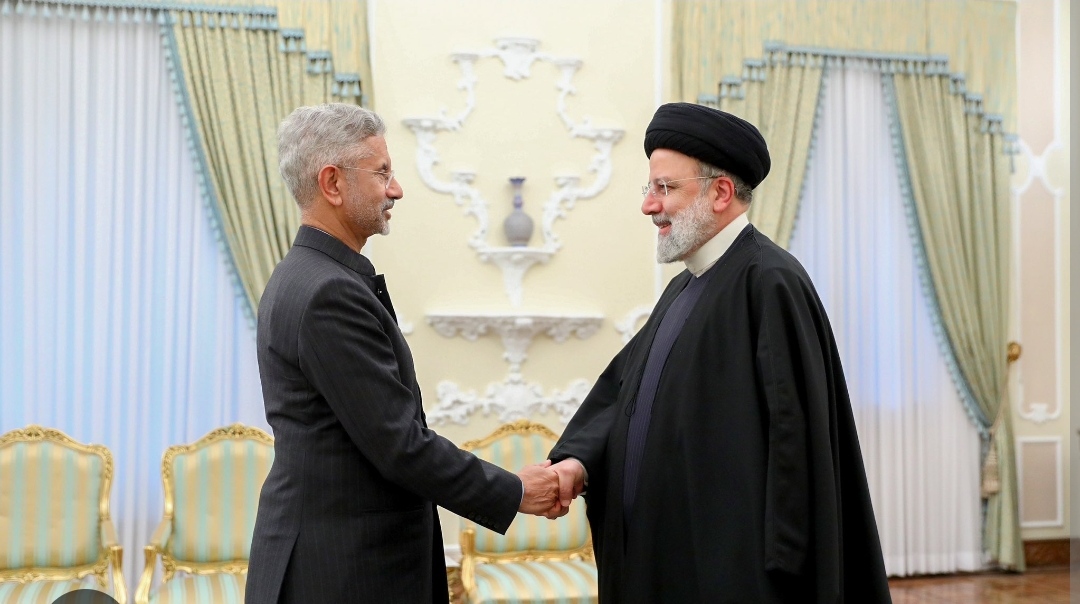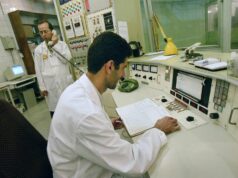Jaishankar calls on Iran President Ebrahim Raisi

Shri Jaishankar, on a two-day visit to Iran, called on Iran President Dr Ebrahim Raisi and conveyed greetings of Prime Minister Narendra Modi.
Jaishankar also met Iran’s Foreign Minister Dr Hossein Amir-Abdollahian and held discussions on bilateral, regional and global issues. Jaishankar said the visit gave him an opportunity to personally convey “our condolences to my counterpart on the recent terrorist attack in Kerman”. PM Modi has written to President Raisi in this regard as well.
“Our people-to-people contacts have long been a strength…Let me share with you all that the government of India has decided to include Farsi as one of the nine classical languages of India in our New Education Policy,” Jaishankar said.
Jaishankar and Hossein Amir-Abdollahian also discussed the “concerning situation in Gaza”.
“We also exchanged perspectives and assessments on certain regional and global issues and developments. Both of us are concerned about recent events in West Asia, which some call the Middle East, and we emphasised the importance of preventing further escalation of violence and hostilities…India has a longstanding and uncompromising position against terrorism in all its forms and manifestations. This remains so…The deeply concerning situation in Gaza was naturally a subject of our discussions.
“There is a visible humanitarian crisis that needs to be addressed, and the creation of sustainable humanitarian corridors is the need of the day. We welcome the international community’s efforts in that direction. India itself has delivered shipments of relief material to Gaza,” Jaishankar said.
“On the issue of Palestine, let me reiterate India’s long-standing support for a two-state solution where the Palestinian people are able to live freely in an independent country within secure borders. I stressed on the need for all parties to avoid provocative and escalatory actions and to facilitate movement towards dialogue and diplomacy,” he added.
The External Affairs Minister said there has been an increase in threats to the safety of maritime commercial traffic and it has a direct bearing on India’s energy and economic interests.
“As you are all aware, there have also been recently a perceptible increase in threats to the safety of maritime commercial traffic in this important part of the Indian Ocean. The minister also referred to it. We have even seen some attacks in the vicinity of India. This is a matter of grave concern to the international community. Obviously, it also has a direct bearing on India’s energy and economic interests. This situation is not to the benefit of any party, and this must be clearly recognized.”
“I reiterated India’s interest in benefiting from Iran’s unique geographical position to access markets in Central Asia, Afghanistan and Eurasia. We discussed the prospects of energising the International North-South Transport Corridor. In particular, we discussed India’s involvement in the development and operation of the Chabahar port, a joint project with a joint vision of connectivity,” he added.
As the war in Gaza has crossed 100 days, External Affairs Minister S Jaishankar on Monday underscored the urgency of addressing the “visible humanitarian crisis” in the Middle East while stressing the importance of “avoiding escalatory actions.”
The two ministers held “wide-ranging” bilateral discussions in Tehran, which also included the Gaza situation, Afghanistan, Ukraine and BRICS cooperation.
“Also spoke about threats to maritime shipping in the region. Important that this be speedily addressed. Other issues on the agenda were the Gaza situation, Afghanistan, Ukraine and BRICS cooperation,” his post added.
In the joint press conference, Jaishankar highlighted the need for a concerted effort to mitigate tensions in the region, saying, “We also exchanged perspectives and assessments on certain regional and global issues and developments. Both of us are concerned about recent events in West Asia, which some call the Middle East, and we emphasised the importance of preventing further escalation of violence and hostilities.”
The EAM also expressed India’s unwavering stance against terrorism, emphasising its commitment to addressing the humanitarian aspects of the crisis, particularly the impact on women and children.
“India has a longstanding and uncompromising position against terrorism in all its forms and manifestations. This remains so very much for women and children was our primary focus,” he said.
“There is a visible humanitarian crisis that needs to be addressed, and the creation of sustainable humanitarian corridors is the need of the day,” Jaishankar said, urging international collaboration. He also acknowledged India’s contribution to relief efforts by delivering shipments of aid to Gaza.
“On the issue of Palestine, let me reiterate India’s longstanding support for a two-state solution where the Palestinian people are able to live freely in an independent country within secure borders,” Jaishankar affirmed.
He stressed the imperative for all parties to “avoid provocative and escalatory actions and to facilitate movement towards dialogue and diplomacy.”
On 100th day of the war, Israeli Prime Minister Benjamin Netanyahu said that “nobody will stop us” from destroying Hamas. He suggested Israel would not comply with the UN’s top court (International Court of Justice), where it is accused of genocide.
At least 24,100 people have been killed and over 60,800 have been wounded in Israeli attacks on Gaza since October 7. The death toll in Israel from the October 7 Hamas attacks stands at 1,139.



